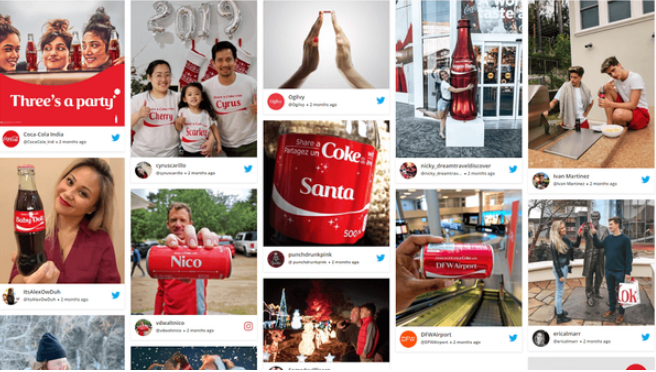What is Brand Advocacy?
Brand advocacy refers to customers’ voluntary participation in brand building and value creation. This behavior includes spreading positive word-of-mouth and defending the brand against criticism. Advocates passionately endorse the brand, sharing their experiences and influencing others’ perceptions and purchasing decisions.
Research shows that brand advocacy arises from a strong, satisfactory relationship between the consumer and the brand. It often indicates a deep consumer-brand identification where consumers align closely with the brand’s values and identity. This bond is nurtured through consistent positive interactions, leading to trust and emotional attachment.
Who are Brand Advocates?
1. The concept of working consumers
A study by Cova and Dali (2009) defines brand advocates as working consumers who are empowered to engage in the brand-building process actively. They invest time and effort into creating value and enhancing the brand’s equity as this engagement helps them strengthen their self-identity and communicate it with the public.
Working consumers go beyond mere usage or product users; they become co-creators and ambassadors, often sharing their positive experiences and recommendations with others.
The study explains that working consumers perceive the brand as their own property and use their engagement to signal their desired self-identity to others. Participating in brand activities, creating content, and providing feedback contribute significantly to the brand’s growth and reputation.
Their advocacy must be driven by a genuine passion for the brand, which they communicate through various channels, including social media, personal networks, and community events.

2. Employees as unsung advocates
Employees can be powerful brand advocates. When employees believe in the brand and its values, they naturally promote it through their interactions, both professional and personal.
Their insider knowledge and genuine enthusiasm can lend authenticity and credibility to their advocacy, influencing their networks and the broader market. Employee advocacy enhances the brand’s visibility and builds a trustworthy image, as employees are seen as credible sources of information about the brand.
A study on the needs and expectations of the new employee generation discovered that companies should focus on fulfilling their multifaceted needs to turn them into proactive brand advocates.
This includes providing a challenging, innovative work environment that encourages continuous engagement and growth. Employers must also cater to personal work needs such as flexibility and social interactions to foster satisfaction and loyalty. Adequate training and personal development opportunities are crucial, as they help employees internalize the brand values and enhance their affective brand association.
Determinants of Brand Advocacy – How to turn people into advocates
1. Build brand trust
Trust is a fundamental pillar of brand advocacy. Brand trust is the confidence and belief consumers have in a brand’s ability to deliver on its promises and meet their expectations consistently. By being focused on building trust, brands can make their consumers more loyal and less likely to be affected by other competitors’ offerings because trying something new with higher perceived risks is unnecessary.
It is believed that the more people are loyal to a brand, the more active they are in advocating for it. A survey by Edelman shows that around 67% of consumers say they are only loyal to the brand they trust. This trust is built through several key components:
Read More: 7 Proven Ways To Build Brand Trust For All Businesses
1. Consistent Brand Experience
A brand must consistently deliver on its promises. This reliability fosters a sense of security and certainty, encouraging consumers to advocate for the brand. Research by Accenture shows that 51% of consumers stay loyal to brands that consistently meet their expectations. Overall, consistency in product quality, service, and communication reinforces the brand’s reliability, making consumers more likely to recommend it to others and become advocates.
2. Transparency and Authenticity
Authentic brands commit to their promises and remain true to their core identities. Transparency in communications enhances this authenticity, as consumers appreciate honesty and integrity. A study by Label Insight (2016) found that 94% of consumers are more likely to become advocates for a brand that offers complete transparency. When brands are honest about their practices, it builds trust and encourages advocacy.
3. Excellent Customer Service
Superior customer service can turn satisfied customers into loyal advocates. Addressing customer concerns promptly and effectively demonstrates a brand’s commitment to its customers. 7 out of 10 U.S. consumers say they’ve spent more money to do business with a company that delivers great service. Exceptional customer service not only resolves issues but also leaves a lasting positive impression, fostering loyalty and advocacy.
4. Social Proof
Reviews, testimonials, and earned media serve as social proof, reinforcing the brand’s credibility. Positive feedback from other consumers can significantly influence potential advocates. BrightLocal’s Local Consumer Review Survey (2020) reported that 87% of consumers read online reviews for local businesses, with 79% trusting online reviews as much as personal recommendations.
5. Personalization
Tailoring experiences and communications to individual preferences makes consumers feel valued and understood, strengthening their bond with the brand. Epsilon (2018) found that 80% of consumers are more likely to purchase from a brand that offers personalized experiences. Personalized interactions demonstrate that the brand understands and values its customers, fostering trust and advocacy.
In an era where data breaches are common, ensuring robust data privacy and protection measures can build trust and reassure consumers. A survey by Forbes found that 86% of consumers say they have become more concerned about how their data is used. Brands that prioritize data protection can build a secure environment, enhancing consumer trust and loyalty. DuckDuckGo, for example, has thrived in a super-competitive search engine market and built brand advocacy by tapping into a niche market of privacy-concerned users. The company gains trust by staying consistently focused on search engine users’ personal data and simplifying the search experience.
7. Community Engagement
Actively engaging with the community and showing a genuine interest in societal issues can enhance a brand’s reputation and foster trust. Cone Communications’ CSR Study (2017) revealed that 87% of consumers purchase a product and support the brand because it tries to address an issue of their concerns. Community involvement shows that a brand is socially responsible, which can resonate well with consumers and encourage advocacy.
8. Building a Clear Brand Personality
A well-defined and sincere brand personality helps consumers connect on an emotional level. Brands perceived as friendly, reliable, honest, and down-to-earth are more likely to earn consumer trust. According to a study published in Psychology & Marketing (2010), brands that exhibit sincere personality traits are more likely to gain higher trust and emotional attachment from consumers, leading to increased advocacy.
2. Enhance brand satisfaction
Satisfaction is a key driver of brand advocacy. It typically results from a post-purchase evaluation where the brand exceeds consumer expectations. Excellent service and high-quality products contribute to this satisfaction, making consumers more likely to recommend the brand to others. Satisfied customers who experience consistent positive interactions are inclined to advocate for the brand, as it fulfills their expectations and needs effectively.
3. Brand-customer identification
Brand advocacy must be built upon an emotional connection between the consumer’s self-concept and the brand identity. According to Social Identity Theory, individuals categorize themselves based on social contexts and seek to become part of social groups that enhance their self-evaluation.
When a brand embodies characteristics that consumers desire such as environmental friendliness, innovation, etc., it allows them to attach to the brand, transferring these unique attributes to themselves, thus providing a sense of belonging.
Furthermore, when a brand’s identity overlaps with customers’ values, beliefs, and lifestyles, it strengthens the connection. This alignment means the brand reflects the consumer’s self-concept, making them feel understood and represented.
This conclusion originates from self-expansion theory which suggests individuals are motivated to enhance their self-concept by integrating new, meaningful aspects. When consumers perceive a brand as reflective of who they want to become, it validates and expands their identity, generating positive emotions like brand love and advocacy.
Ultimately, brand-customer identification satisfies psychological needs for uniqueness, achieving an ideal self, and constructing a coherent self-identity, thereby driving consumers to advocate passionately for the brand.
4. A sense of commitment
Consumers need to experience a sense of commitment and responsibility to become genuine brand advocates. A study on brand satisfaction, trust, and commitment suggests there are 3 types of commitment firms should focus on to enhance brand trust and advocacy.
Firstly, brands should trigger normative commitment. Normative commitment arises when consumers feel morally obligated to advocate for the brand, often due to its significant and relevant offerings.
While normative commitment may be less effective than other forms, it is the easiest way to foster a loyal customer base. For instance, brands can focus on transparent, impactful CSR activities that resonate with their consumers’ values, encouraging advocacy through a shared sense of responsibility and ethical alignment.
Secondly, affective commitment is driven by emotional attachment to a brand. Consumers who see the brand as an extension of their identity or a close friend are more likely to become passionate advocates. Brands can cultivate affective commitment by creating meaningful, personalized experiences that engage their consumers emotionally. Storytelling, personalized marketing, and community-building efforts help reinforce this emotional connection, making consumers feel understood and valued, thereby driving advocacy through deep emotional ties.
Finally, we have continuance commitment in which brands raise the switching costs to make them expensive so that people become forcefully committed to the relationship. This technique includes long-term contracts, subscription fees, etc. Despite being a straightforward strategy, brands must avoid making consumers feel trapped, as this can lead to negative perceptions.
5. Foster brand community
Engaging users in virtual communities on social media platforms is vital for building brand advocacy. These communities offer a sense of belonging, resonating with users’ interests, values, and identities. As mentioned above, when people feel connected to a group that aligns with their beliefs, they are more likely to express their opinions and share their experiences.
Brands should focus on making their virtual communities meaningful and relevant by clearly defining the group’s purpose, maintaining high-quality content, and encouraging member participation through rewards and recognition.
Also, the use-and-gratification theory highlights that people engage with virtual communities to fulfill a variety of psychological needs such as entertainment, relaxation, and recognition. Brands should leverage this by understanding what drives their customers and offering incentives that meet these needs.
Providing exclusive discounts, early access to new products, and opportunities for participation in contests or giveaways can attract and retain group members. By aligning incentives with customer motivations, brands can enhance engagement and foster stronger brand advocacy.
Read More: All We Need To Know About Digital Engagement Strategy
Measuring Brand Advocacy
Key Metrics
- Customer Satisfaction Scores: One of the most direct indicators of brand advocacy is customer satisfaction scores. High levels of satisfaction typically correlate with positive word-of-mouth and recommendations, indicating strong advocacy.
- Social Media Metrics: Monitoring social media engagement is crucial. Metrics such as shares, mentions, likes, and comments can provide insights into how actively customers are advocating for the brand. High engagement levels on social media often reflect a strong community of brand advocates.
- Referral and Conversion Rates: Referral rates indicate how often customers are recommending the brand to others, while conversion rates show how effective these recommendations are. High referral and conversion rates suggest successful advocacy efforts.
Measurement Tools and Techniques
- Analytics Platforms: Utilizing analytics software is essential for gathering data on brand advocacy. Tools like Google Analytics, Hootsuite, and Brandwatch can track customer interactions, social media engagement, and referral rates, providing valuable quantitative data.
- Data Analysis: Interpreting both qualitative and quantitative data is crucial for understanding brand advocacy. Techniques such as sentiment analysis can help decode customer emotions and opinions expressed in reviews and social media posts. Quantitative methods, like trend analysis and correlation studies, can identify patterns and relationships in the data.
Feedback and Improvement
- Using Feedback: Implementing changes based on customer feedback is vital. Brands should actively seek out and analyze feedback from customers to identify areas for improvement. Addressing concerns and acting on suggestions can enhance customer satisfaction and brand advocacy.
- Adjusting Strategies: Continuously tweaking and refining advocacy programs based on feedback and data insights is essential. By staying agile and responsive, brands can better meet the needs of their advocates and strengthen their advocacy programs. This iterative approach ensures that advocacy efforts remain effective and aligned with customer expectations.
Future Trends of Brand Advocacy
1. Value Co-creation & Online Communities
Involving customers in value creation in virtual brand communities will revolutionize brand advocacy. Companies must enable 2-way interaction between them and customers. Firms can harness the collective intelligence and creativity of their customer base to innovate and enhance their offerings.
For instance, companies like LEGO and Starbucks have leveraged their online communities to gather ideas and feedback, resulting in products and services that closely align with customer preferences.

A study on online communities highlighted that firms that effectively engage in value co-creation in their communities see higher levels of customer satisfaction and brand advocacy. This is because customers feel more invested in the brand when they see their contributions making a tangible impact. Overall, turning customers into brand advocates requires companies to build up a sense of psychological ownership in which customers feel they are more like the owners of the brands than merely the product users.
2. AI-powered personalization becomes a priority
AI-powered personalization is rapidly becoming a priority for brands aiming to enhance customer experience and drive brand advocacy. Advanced AI algorithms analyze vast amounts of data to deliver highly tailored recommendations and experiences.
For example, Netflix and Amazon use AI to provide personalized content and product suggestions, significantly improving user satisfaction and engagement. According to a report by McKinsey, companies that excel at personalization generate 40% more revenue from those activities than average players.
The growing emphasis on AI-powered personalization is driven by consumers’ increasing expectations for customized interactions. A survey by Accenture found that 91% of consumers are more likely to shop with brands that provide relevant offers and recommendations.
As brands invest more in AI technologies, they can better understand and anticipate customer needs, fostering deeper connections and loyalty. This trend not only enhances customer experience but also boosts conversion rates and intention to become brand advocates, making AI-powered personalization a crucial element of modern brand strategy.
3. Employees and personal branding
Employees and their personal brands play a significant role in building brand equity nowadays. We all know that customers interact and connect with people before they do with companies. Research shows that as employees embody the corporate brand’s values and promises, their behaviors on social platforms and in-person conversations directly influence customers’ evaluation and perception of the brand itself.
When employees align their personal brands with the corporate brand, they can deliver authentic, consistent interactions that resonate with customers, inspiring them to become new brand advocates. 74% of customers are loyal to a company when they can interact with real people instead of the automated system.
The integration of employees’ personal branding with corporate branding is crucial for future brand advocacy. As employees serve as the human face of the company, their genuine and consistent interactions with customers foster trust and loyalty, driving advocacy and strengthening the brand’s reputation.

4. Sustainability & Ethical Practices
Since customers are increasingly aware of the environmental impacts of their consumption habits, they demand more sustainable and ethical business practices and even publicly express their advocacy for green companies.
In the UK, for example, 75% of residents have already adopted some eco-friendly behaviors such as recycling household waste and buying second-hand clothes. Globally, 44% of consumers said they were more likely to buy from a brand with a commitment to sustainability. A survey by McKinsey & Co. shows that millennials are the biggest group of consumers in which 75% are highly concerned about green consumption.
Sustainability and ethical practices are becoming central to brand advocacy. Companies that prioritize these values meet the growing consumer demand for eco-friendly options and build stronger, more loyal customer bases. As environmental awareness increases, brands committed to sustainability will continue to gain advocacy and market advantage.
Read More: What is Sustainable Marketing? Definition, 4Ps Strategy, Trends & Challenges
Academic sources for this blog:
Becerra, E.P., and Badrinarayanan, V. (2013) The influence of brand trust and brand identification on brand evangelism. The Journal of Product and Brand Management. 22(5/6), pp.371-383.
Bhati, R., and Verma, H.V. (2020) Antecedents of customer brand advocacy: a meta-analysis of the empirical evidence. Journal of Research in Interactive Marketing. 14(2), pp.153-172.
Cova, B., and Dalli, D. (2009) Working consumers: the next step in marketing theory? Marketing Theory, 9(3), pp.315-339.
Fullerton, G. (2011) Creating advocates: The roles of satisfaction, trust and commitment. Journal of Retailing and Consumer Services. 18(1), pp.92-100.
Shimul, A.S., and Phau, I. (2023) The role of brand self-congruence, brand love and brand attachment on brand advocacy: a serial mediation model. Marketing Intelligence & Planning. 41(5), pp. 649-666.
Sy Chu
As an analytical and creative marketing enthusiast skilled in customer analysis, content research and brand management, my passion is help businesses gain insights into their brand and marketing strategies to drive impactful outcome to their success.
